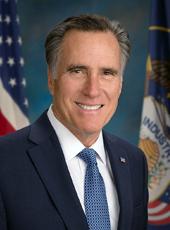To: Interested Parties
From: Lanhee Chen, Ph.D., Policy Director
Date: 8/7/2012
Re: The Rise And Fall Of Welfare Reform
President Obama's attempt to dismantle the bipartisan welfare reform of 1996 may energize his dispirited liberal base, but it is an insult to those on welfare and the millions of hard-working middle-class taxpayers struggling in the Obama economy.
For decades, welfare was simply an entitlement — a government check in place of a paycheck. In 1996, in one of the great bipartisan policy achievements in recent memory, President Bill Clinton joined with a Republican Congress to end welfare as we knew it. Welfare reform replaced old-school welfare with a welfare-to-work program that emphasized personal responsibility and the dignity of work over government dependence. The reform shifted control of welfare to the states within clearly defined boundaries, the most important of which was the work requirement: federal funding would hinge on states successfully moving welfare recipients back into the workforce. According to Brookings Institution scholar Ron Haskins, the reforms triggered an unprecedented decline in welfare caseloads, with the vast majority of those leaving the rolls in fact able to find work. Earnings for low-income families surged and child poverty plummeted.
Unfortunately, not everyone was enthusiastic about welfare reform. For instance, a man named Barack Obama took to the floor of the Illinois state senate to announce his opposition. A devoted believer in old-school, big-government liberalism, Mr. Obama had no interest in embracing the welfare reform package that linked welfare to work. Now as president, with an economy struggling, an election looming, and a dispirited liberal base in need of encouragement, he has decided to turn back the clock.
On July 12, the Department of Health and Human Services issued an extraordinary memorandum announcing that welfare reform's firm and previously unquestioned work requirements were in fact merely optional and subject to the whim of the President and his Administration. Subsequent protestation that they will use their newly claimed discretion wisely is entirely beside the point. After fifteen years of successful reform built on the premise that work requirements are inviolable, President Obama apparently believes he can approve whatever "definitions of work activities" and "calculation of participation rates" he wants. And the memorandum makes clear that he hopes states will consider approaches that remove work participation rate requirements all together.
This policy change undermines the very premise of welfare reform. It is an insult to Americans on welfare who are looking for an opportunity to build better lives for themselves. And it is a kick in the gut to the millions of hard-working middle-class taxpayers struggling in today's economy, working more for less but always preferring self-sufficiency to a government handout. Of course all Americans want to help their fellow citizens having difficulty finding a job in the Obama economy, but they do not want to see the return of a culture of dependency and the reversal of welfare reform's hard-won gains by a President who never believed in that reform in the first place.
Unlike President Obama, Mitt Romney has always been a strong supporter of welfare reform and its work requirements. Because Massachusetts had implemented reforms of its own shortly before the federal reforms of 1996, it was actually exempt from many of the federal requirements when Romney took office as governor. But nevertheless, facing an overwhelmingly Democratic legislature in one of the most liberal states in the country, Romney vetoed efforts to weaken work requirements and he pressed repeatedly to instead strengthen them and bring them in line with federal standards.
Americans face a stark choice this November between two very different visions of our country's future, and President Obama's attempt to unwind welfare reform offers a perfect illustration of the choice. The Obama campaign slogan may be "Forward," but his policies will take America backward — back to the discredited liberalism of a bygone era where bigger government programs and bigger government checks were the answer to every problem, and accountability was not on the agenda. It is no surprise that on the President's watch millions of Americans have given up on work entirely and the labor force participation rate has plummeted to a level not seen in decades (correcting for this, the unemployment rate today is above eleven percent).
Mitt Romney offers a different approach. As president, he will immediately rescind the Obama HHS memo on welfare, and make clear that work requirements are not optional. That same philosophy will guide his plan for a stronger middle class that relies on the hard work and ingenuity of the American people — not more directives and dollars from Washington — to produce a true economic recovery that delivers more jobs and more take-home pay.
Click Here To Watch Romney For President And The Republican National Committee's New TV Ad, "Right Choice"
Mitt Romney, Romney Campaign Press Release - Memorandum: The Rise And Fall Of Welfare Reform Online by Gerhard Peters and John T. Woolley, The American Presidency Project https://www.presidency.ucsb.edu/node/302411

